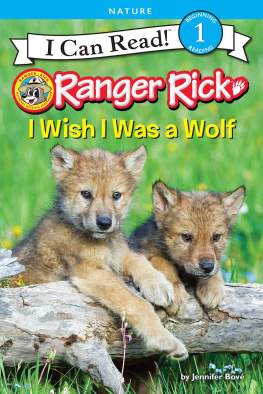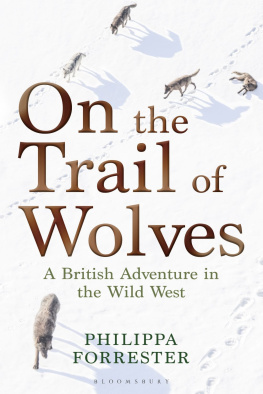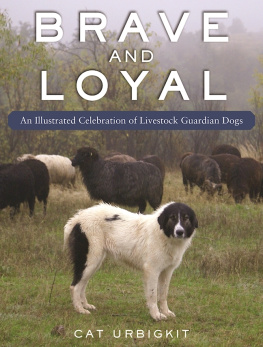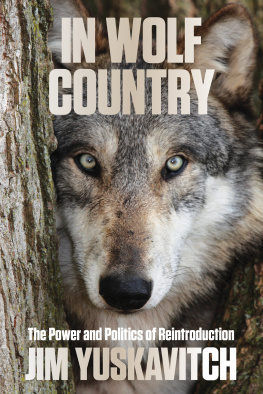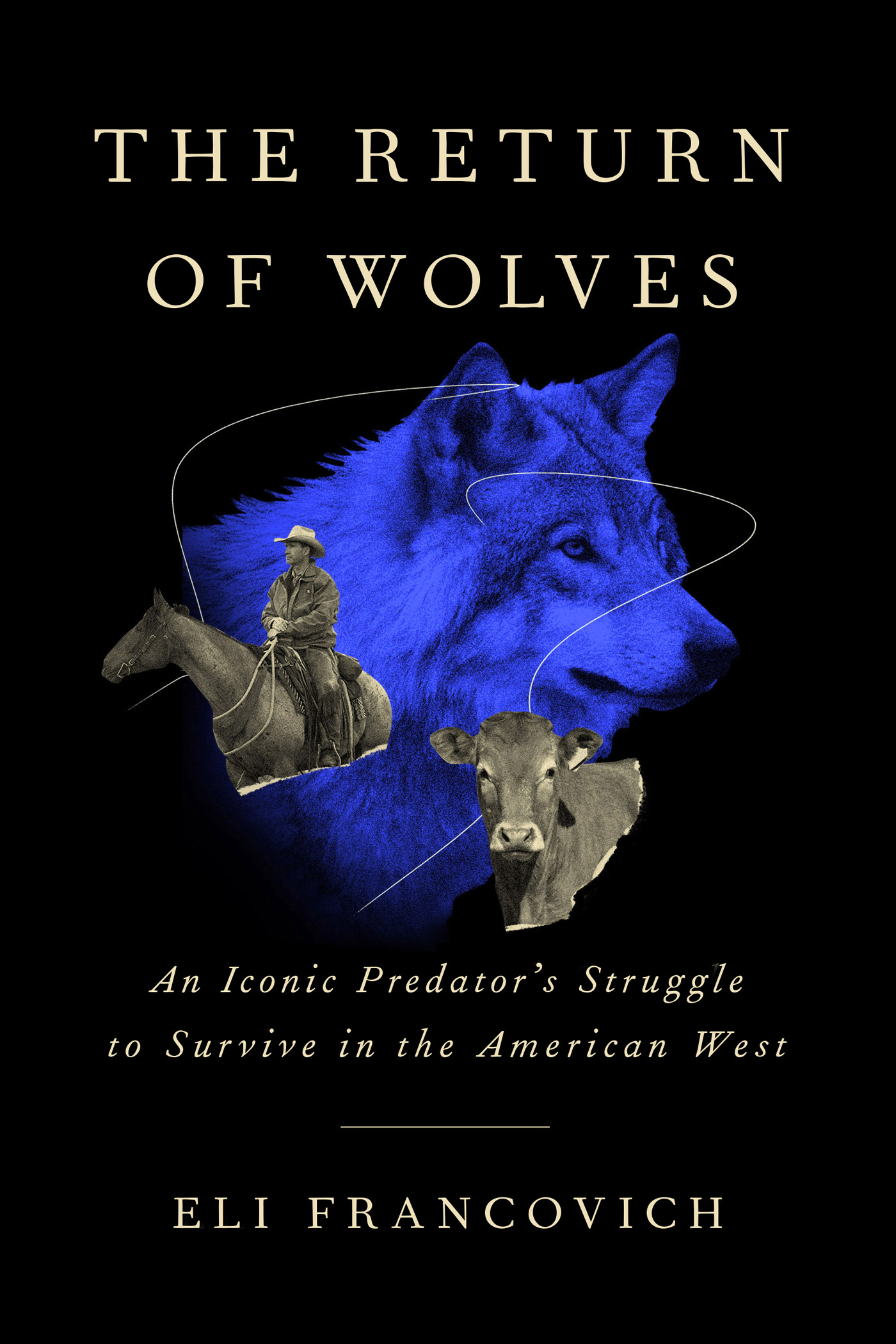Contents
Guide
Page List
To Chris for showing me how to think.
To Karen for showing me how to feel.
And to Leo for pointing the ways forward.
The Return of Wolves
An Iconic Predators Struggle
to Survive in the American West
Eli Francovich
Timber Press
Portland, Oregon
To Chris for showing me how to think.
To Karen for showing me how to feel.
And to Leo for pointing the ways forward.
Contents
Introduction
It rains early, the drumming on my tent drowning out the noise of the nearby creek. Weve made our camp in the middle of what used to be Diamond City. The central remnant of the town is a massive fifteen-foot fireplace, lush with vegetation and moss. Concrete blocks and deep, stagnant wells now full of trash are scattered through the woods. In the 1920s, Diamond City popped up around the logging interests of the Diamond Match Company, at the time one of the largest match manufacturers in the United States. Based in Ohio, they had a plant here in Washington where they harvested white pines. The plant is long gone, but the pines remain.
Daniel Curry, my lanky guide, eats one meal a day. After he eats, he falls asleep no matter what. He breaks his daily fast late at night, which means a quick breakfast for me, and then were saddling two of Currys seven horses. Todays mission will primarily be a crash course in equestrian skills, although there is also a trail we need to clear. The trail follows an abandoned roadbed, heading north into thicker and steeper country where cattle graze. And where cattle grazeat least in much of the western United Stateswolves roam.
Im riding Raven, a jet-black Arabian quarter horse. Raven is a beautiful and powerful animal, and the only horse Curry owns that is purebred. Raven, for his part, knows hes a handsome lad and doesnt take kindly to fools. Unfortunately, when it comes to horses (if not other things), I am a fool.
Like most born to this age, nature is a distant amenity for me. I spend more time than many outside. I like to go hiking, skiing, climbing, hunting, and even occasionally bird watching. But there is no urgency in my relationship with the natural world. No necessity. No deep communion. My times outside are sojourns between the next warm meal and engaging Netflix series. I soon discover that working with a horse requires a different level of commitment.
We ride up the narrow road, sawing through downed trees and hacking at encroaching vegetation. We stop often, and I practice mounting and dismounting Raven. Its hard work, made harder by a sun thats burned through the mornings clouds and left the air heavy with moisture.
Curry describes horses as one-thousand-pound third graders and treats them as such, employing a brand of progressive discipline that would make even the most conscientious parents look like capricious fools. He also doesnt use bits. Do this, he says about his generally kind-hearted approach, and the horse will learn to trust and respect you.
I try, but I keep getting stuck on the first half of his description, the one-thousand-pound detail. This is a big animal, Im beginning to understand. An animal that could toss me from its back and be gone faster than I could holler out in surprise. Thus, Im a little lax with the discipline. And it turns out that Raven, like many handsome creatures used to skating by on good looks, doesnt like to work all that hard. So, when he is compelled to carry foolish reporters, he likes to eat.
We take a few steps and then he stops, bends his graceful neck, and nibbles. I try making the little kissing sound that, whenever performed by Curry, snags Ravens attention as if a gun has gone off. Smooch, smooch, I go.
Raven just keeps on chowing down.
And so it goes for several hours: Raven trundling along slowly, eating often, and occasionally heeding my requests. By my standards, this is a victory. The one-thousand-pound third grader has allowed me to live another day. When we turn around, I breathe easier.
Raven too, is excited to go home and suddenly the lethargic pace hes maintained turns into an excited trot. Curry is leading the way on his horse Griph, and this keeps Raven from bolting altogether. But its quickly evident that I have lost what little control I had. Heading down one particularly steep hill, Raven guns it, dragging me through low-lying tree branches. I squeeze my eyes shut, the branches whipping my face, and remind myself that I have medical insurance.
Smooch, smooch, goes Curry, and Raven screeches to a stop, ears attentive, eyes on Curry, the perfect picture of obedience. Curry is not happy. Face scratched, Im just pleased not to have been thrown to the ground. Raven needs to listen to you, Curry says. But he will only listen if he respects you. To respect you, he needs to trust you.
I pull some woody debris from my hair.
For the next hour, we work on discipline. We walk the same section of trail over and over. I ask Raven to stop. If he doesnt listen to me, which mostly he doesnt, I ask him to back up. Slowly, Raven gets the picture. This is important, Curry says. When were out in the real mountains, on treacherous terrain, Raven must obey. Otherwise, Raven might get hurt.
To our left, the hill drops steeply fifty feet to a raging creek jammed with logs, which makes me wonder what truly treacherous terrain looks like.
Or you might get hurt, Curry adds.
Its slow, frustrating work, for both Raven and me. Curry, for his part, teaches with an extraordinary amount of patience. When we finally return to camp, Raven cant wait to get the saddle off, get under his tarp, and eat some hay.
Unfortunately for him, thats not the plan. Instead, we will rest for about an hour and then head out again. Curry is giving me a crash course in horsemanship, after all.
Toward the end of our break, during which I eat and Curry paces around the camp, the rain returns. Raven is tethered to the horse trailer with a thick line of rope. I approach him to put his reins on, a job Ive by now learned to do somewhat efficiently. First I untie the thicker line and retie it around the back of his neck. Then I start to place the reins on Raven, a thick loop of stout rope that sits on his sensitive snout. He snorts, shakes his pretty head, and backs up.
The thick line tightens on the back of his neck, and he panics, rising up on his hind legs and kicking his feet forward. Curry senses the disturbance from the other side of the trailer and yells, Get away from him.
No need to say it twice. Raven bucks again and slips his neck from the thick lead line. Free, he starts to run. It would be a beautiful sight if I werent so worried about those hooves.
Curry wastes no time. He follows Raven, not running but not exactly walking, either. Come on, he says. Calm down. Raven roars through camp, briefly becoming tangled in the lines holding up our rain tarp and then ripping himself free again. Curry follows. In the woods there is a large hole, one of those old wells now full of trash. Curry gets in between Raven and this death trap and, using a combination of stomps and smooches, he pushes the fed-up animal away from camp and uphill into thicker brush and out of my sight.
Im left alone, worrying my mistake will hurt Curry, or Raven, or both of them. Im soaking wet. My pants are torn, boots soggy. This is not the kind of drama I expected to find when I came looking for wolves.
Amidst the dirge of ecological decline, the return of wolves to the lower forty-eight has been a major chord in a chorus of minors. Their return from near-extinction after decades of focused assault is a remarkable conservation and cultural success story. In 1995 and 1996, biologists released thirty-one wolves into Yellowstone National Park. The canids, which had been relocated from Canada, multiplied and spread. Bolstered by similar releases in Idaho and Wyoming, the population grew. Over the following decades, wolves made their way throughout the West, inhabiting territory and habitat that hadnt seen the apex predator since their local eradication one hundred years earlier.



